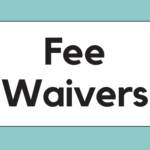Do you want to get a head start on your college journey? Applying early to college can provide you with several advantages, but it’s important to understand the differences between early decision and early action programs.
In this article, we’ll explore the benefits, considerations, and deadlines associated with early applications to help you make an informed decision.
Applying Early Decision
Often touted as a smart move for confident applicants, early decision offers students the advantage of peace of mind during their senior year of high school.
However, it is crucial for students to be absolutely certain about their choice of college before committing to early decision. Here’s what you need to know:
1. Binding Agreement
By applying early decision, you enter into a binding agreement to attend that specific college if accepted.
While this doesn’t mean legal action can be taken against you if you change your mind, applicants are expected to honor their commitment.
2. Withdrawal of Other Applications
Once accepted through early decision, students must withdraw their applications to other colleges.
This ensures a fair opportunity for other applicants and allows the college to accurately gauge their admissions numbers.
3. Limited Flexibility
While you are not legally obligated to attend the college if your circumstances change, you cannot attend another school in the same academic year that you were accepted for.
If you have a change of heart, taking a gap year and reapplying to other colleges for the subsequent academic year may be an option.
4. Financial Aid Considerations
One common concern is the uncertainty surrounding financial aid. Some colleges may consider financial aid a valid reason to break the binding attendance agreement.
It’s best to find out if the college you’re applying to will accommodate changes in financial circumstances before committing to early decision.
Applying Early Action
If you prefer more flexibility in your college decision-making process, early action programs may be the way to go. Here’s what you need to know:
1. Nonbinding Agreement
Early action programs allow students to apply to multiple colleges and still have the liberty to choose. Unlike early decision, accepting an offer through early action does not bind you to attend that particular college.
2. Comparing Financial Aid Offers
One advantage of early action is the ability to compare financial aid offers from different schools. This can be particularly helpful for students who rely on financial assistance to afford college.
However, keep in mind that some colleges, such as Harvard, Princeton, and Yale, only offer single-choice early action programs, limiting your options.
Application Deadlines and Notification Dates
The deadlines for early decision and early action applications typically fall around November 1st. However, it’s essential to check each college’s specific deadline as they may vary. Here’s what you can expect in terms of notification dates:
- Early decision and early action applicants usually hear back by mid-December, giving them a head start compared to regular admission applicants.
- If you are deferred from early decision or early action, you will enter the pool for regular admission and might not receive a decision until mid-March or mid-April.
The Benefits of Applying Early
Applying early can be advantageous for both students and colleges. Schools with early decision programs tend to have higher acceptance rates for early applicants compared to the overall applicant pool. In the words of one admissions officer, “Nothing else in the application process allows a student to express such clear first-choice interest in a particular college.”
For colleges, early decision is particularly valuable as it helps them predict their yield, which is the proportion of accepted applicants who enroll. A high yield positively impacts rankings and enhances desirability among prospective students.
Understanding College Application Deadlines: A Comprehensive Guide
What to Consider Before Applying
While applying early can be beneficial, it’s not the right choice for everyone. Consider the following factors before making your decision:
- Strong academic performance and standardized test scores are often prerequisites for early applications. If you anticipate improved grades or plan to retake standardized tests, waiting for regular admission might be a wise choice.
- If you’re unsure about your college choices but are ready to apply, early action programs provide flexibility without the binding commitment of early decision.
Ultimately, receiving early admission can make your senior year of high school less stressful. However, don’t rush the decision. Take your time, weigh the pros and cons, and make a choice that aligns with your goals and aspirations. Applying early can be a strategic step towards securing a spot at your dream college.
External Article: Facts About Applying Early Decision or Early Action






